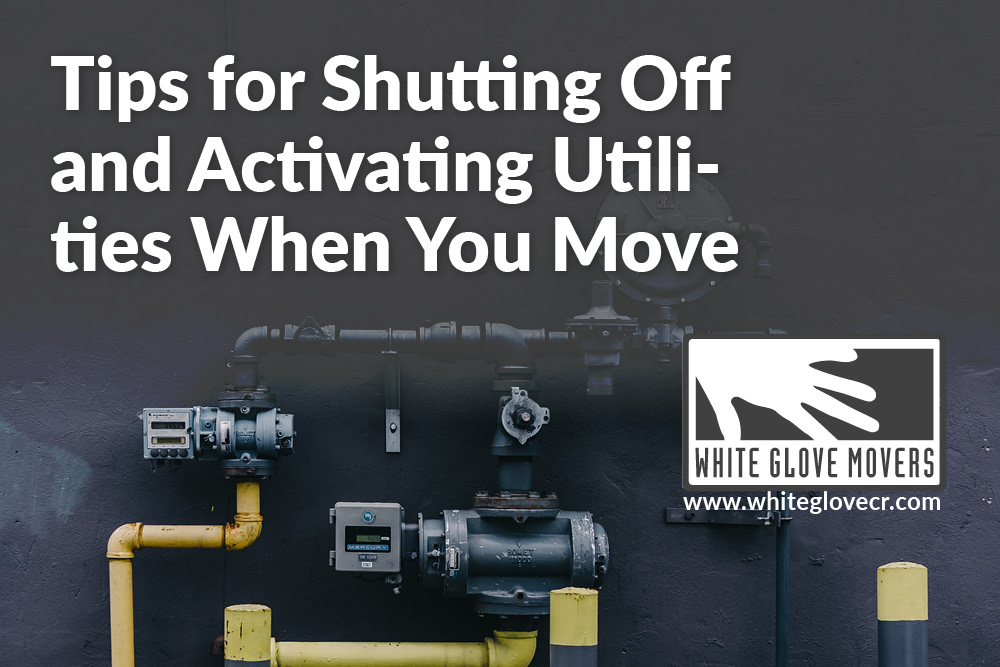When preparing for a residential move, it’s easy to get caught up in the big things. So much so that we forget to take care of the little things like turning off utilities at our old homes. Transferring utilities is pretty easy and it’s important, so make sure this task makes it onto your To-Do List.
Transferring utilities gives you the opportunity to choose the best dates for activation and coordinating this with your moving dates is important so you don’t experience a lapse in service. To transfer your utilities, we recommend following these easy steps.
Before you start making arrangements, locate the contact information for your phone, Internet, water, sewer, gas, electric, trash, cable, or satellite companies.
- Choose your shut-off and activation dates. These dates will be determined by your moving date. A safe bet is to have your utilities shut off the day after you move out of your current space and turned on the day before you move in. This will keep you from moving in the dark!
- Keep your account numbers handy. Make sure you have copies of your most recent bills or keep track of your account numbers so you can provide them to customer service reps when making phone arrangements.
- Let your current utility company know you’re moving as soon as possible. The average utility company requires plenty of advance notice that you’re moving. This way, they can make arrangements with their technicians. Try to call at least three weeks ahead of time so you get services on the dates you need them.
- Pay off any remaining balances. When calling your utility companies, make sure to ask if you have any final balances that need to be paid. Take care of them before your shut-off date to avoid any service disruptions. You should also know that leaving an unpaid balance can impact your credit score.
- Provide your forwarding address. Most companies will ask for this, but make sure you give each utility company your new address in case they return deposits or send you a final bill.
- Arrange activation as soon as you can. Speak to your landlord, realtor, or city government about your new utility providers. Then, call them regarding activation at least three weeks in advance. They may require you to complete a credit check or pay deposits so activation can be scheduled.
- Take a look at your meter before you leave. Now that your items are packed and you’re ready to turn the lights off and head out, check your meters. Write down their levels and take a picture with your phone in case any disputes pop up.
- Ensure someone is there when services are activated. Arrange for a family member, friend, neighbor, or landlord to be at your new home in case there are questions or issues occur.
- Examine your fixtures. Once your services are turned on, go through each room and make sure the fixtures and faucets work correctly.
As a locally owned and operated company, White Glove Movers takes pride in helping you with your residential move. We’re happy to help you with the packing, loading, and arranging of your new space. Give us a call today to discuss your moving needs.





